Description
Product Alternatives: Taurus SC
EPA Registration No.: 100-1306
Active Ingredient: Thiamethoxam – 21.6%
Product Use Instructions:
Optigard Flex Liquid must be applied as a diluted finished application using mixing directions contained in this label. Treatment techniques used should provide placement of the product in the infested areas or as near as possible. Optigard Flex Liquid may be applied to structural voids, in cracks, crevices, corners or other out-of-the-way places, such as under and behind kitchen appliances and baseboards, under sinks, around window and door frames, pipes and water heaters and in the attic, crawl space and garage. Acceptable locations for treatment also include nonliving space areas including crawl spaces, attics and unfinished basements. Applications may be made as a crack-and-crevice spray, a coarse, low-pressure spot spray, a surface spray or as a structural void application. Application to structural voids such as wall voids may be done by drilling a small hole into the void area or using a self-puncturing tip and injecting diluted product so that surfaces inside the void area are treated. Existing holes created by construction features may also be used to gain access to void treatment areas.
Mixing Instructions:
Refer to Application Dilution Table for proper amount of Optigard Flex Liquid to be used to achieve the correct dilution. Refer to Use Directions of specific pest for application procedure and use rates.
To prepare the application mixture, fill the application tank 1/4 – 1/3 of desired volume with water before adding Optigard Flex Liquid. Then slowly add the required amount of Optigard Flex Liquid. Add the remaining amount of water and agitate until product is thoroughly mixed.
Application Dilution Table:
|
Gallons of Finished Solution Desired |
Amount in fl oz (or ml) of Optigard Flex Liquid Needed to Obtain the Following % Dilutions of Active Ingredient: | |
| 0.05% | 0.1% | |
| 1 | 0.27 fl oz (8 ml) | 0.54 fl oz (16 ml) |
| 3 | 0.81 fl oz (24 ml) | 1.62 fl oz (48 ml) |
| 5 | 1.35 fl oz (40 ml) | 2.71 fl oz (80 ml) |
| 6 | 1.62 fl oz (48 ml) | 3.24 fl oz (96 ml) |
| 10 | 2.71 fl oz (80 ml) | 5.41 fl oz (160 ml) |
Interior Pest Control:
In addition to void applications, crack-and-crevice or spot applications may be made to control listed pests in areas not easily accessible to humans. Treatment areas include points or cracks between different elements of construction, spaces between equipment and floor or wall, openings leading to voids in walls, spaces beneath equipment or cabinets, or spaces between trim and floors or walls.
Apply 0.1% Optigard Flex Liquid dilution as a spot or crack-and crevice treatment directly into cracks and crevices or other non-exposure areas as a low-pressure spray using equipment capable of delivering a pin stream of insecticide. Applications may also be made as a foam preparation. Do not make surface applications to living spaces.
Exterior Pest Control:
For control of (listed) pests, use Optigard Flex Liquid as a void application, as an outdoor surface spray, a spot application or crack-and-crevice treatment. Apply to surfaces of structures where pests are likely to enter including but not limited to: utility entry points, soffit areas, eaves and attic vents, around doors or windows, weep or ventilation holes.
Optigard Flex Liquid may also be applied as a mist or foam. For ants (except carpenter ants and Pharaoh ants), treat along sidewalks or landscape edging or other areas where ants (except carpenter ants and Pharaoh ants) are likely to trail. Ant (except carpenter ants and Pharaoh ants) mounds may also be treated with a spot application or with a subsurface injection tool. Retreat as necessary to maintain control. For perimeter applications, do not exceed 17.0 fl oz (502 ml) of Optigard Flex Liquid product per acre per year. When using a banded spray around the perimeter of the structure, a swath extending 3 feet up the structure exterior from the ground and 7 feet away from the foundation may be used.




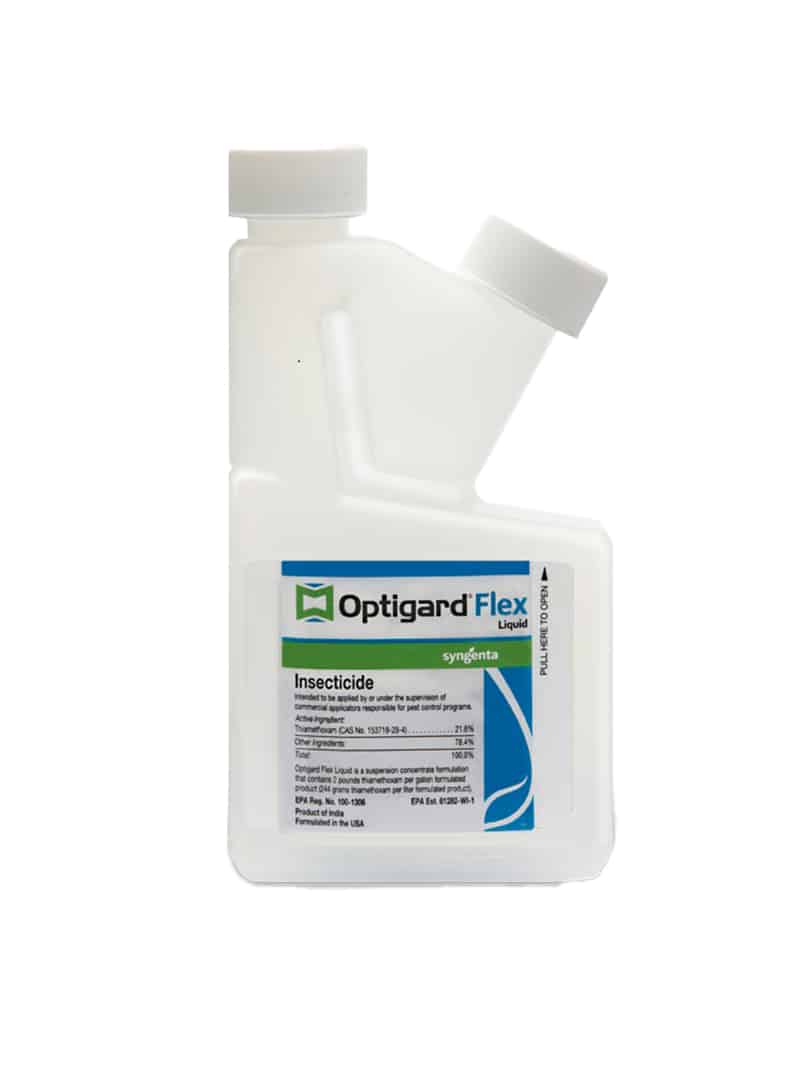
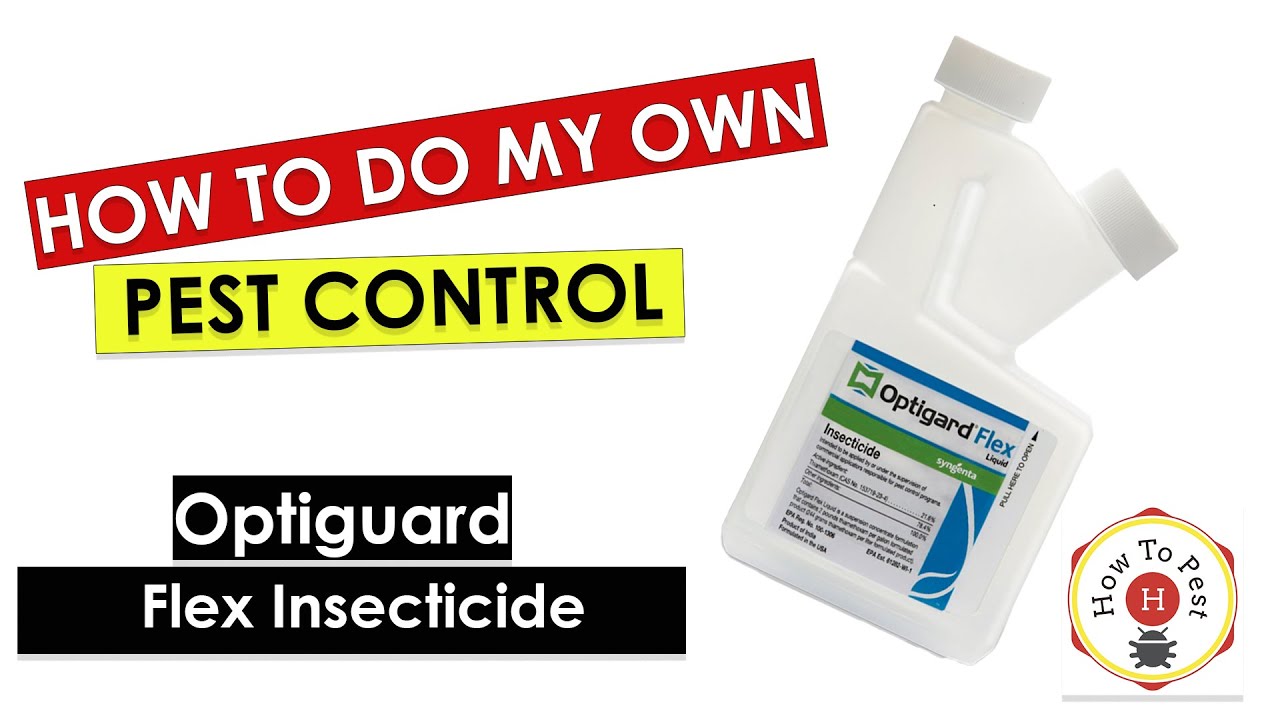
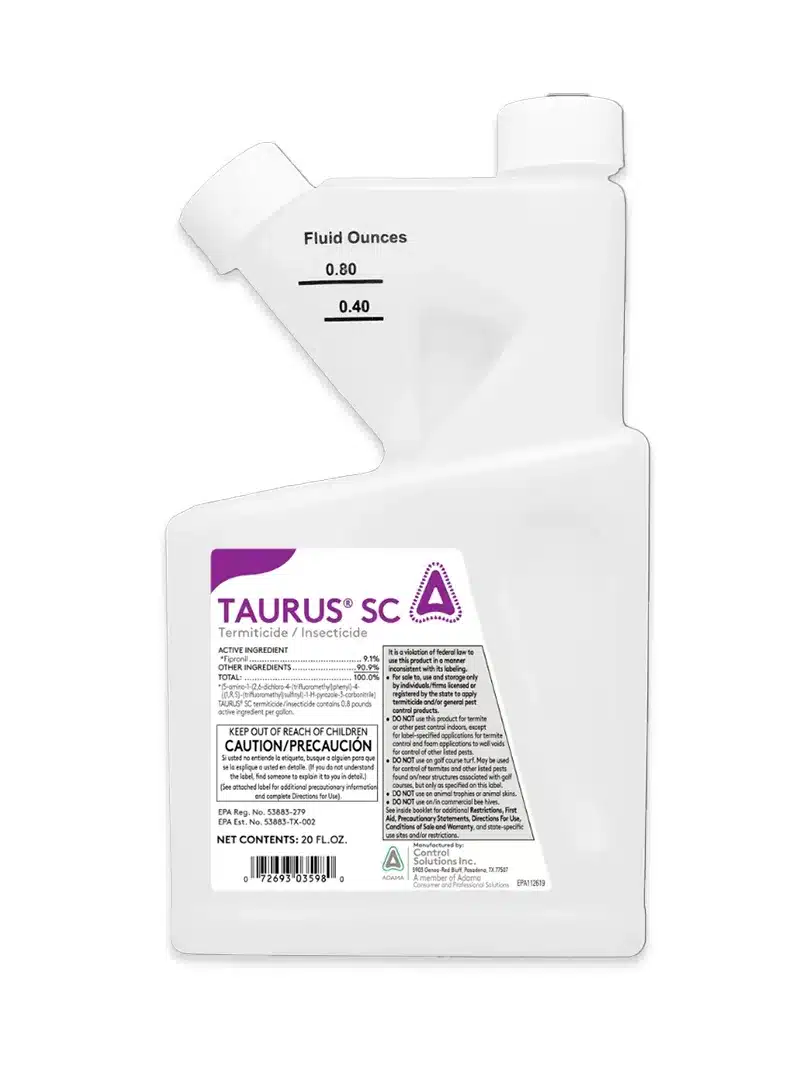
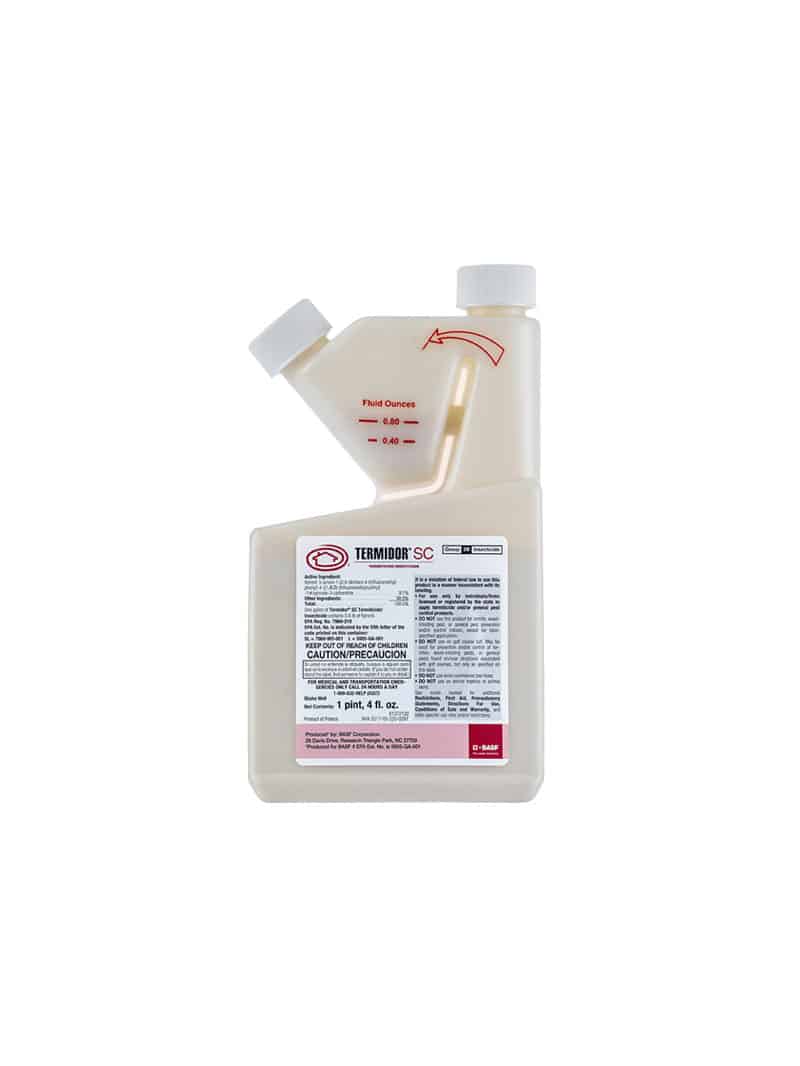
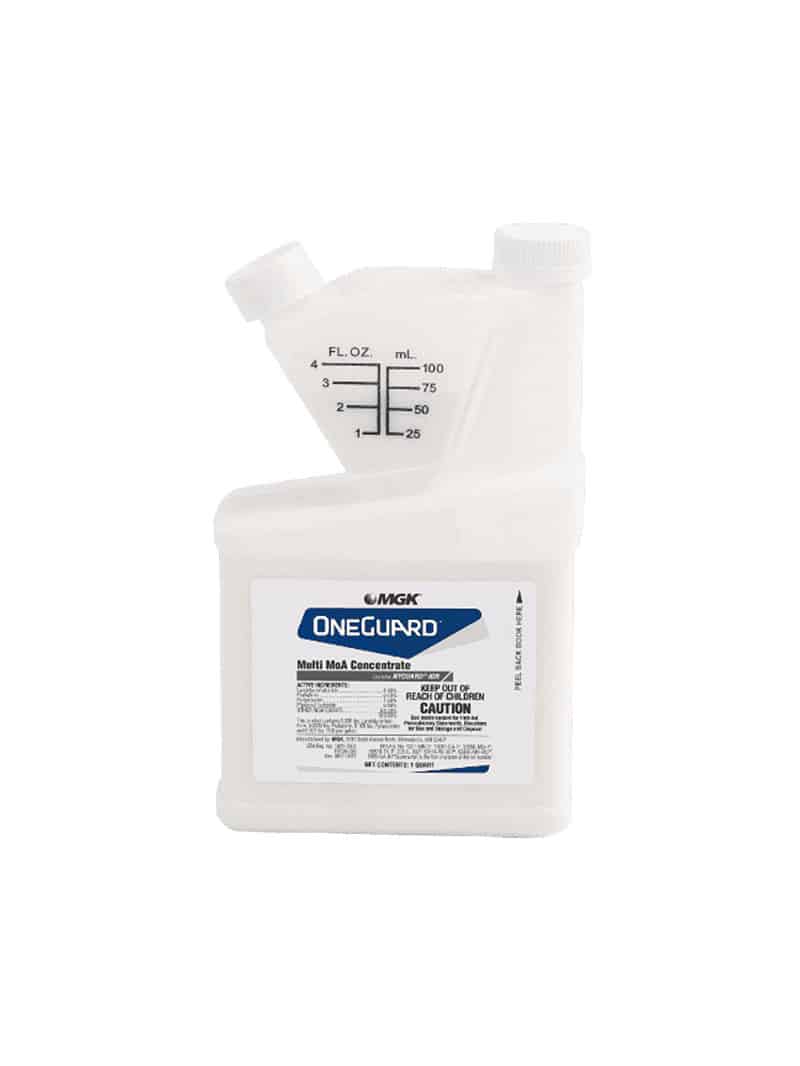
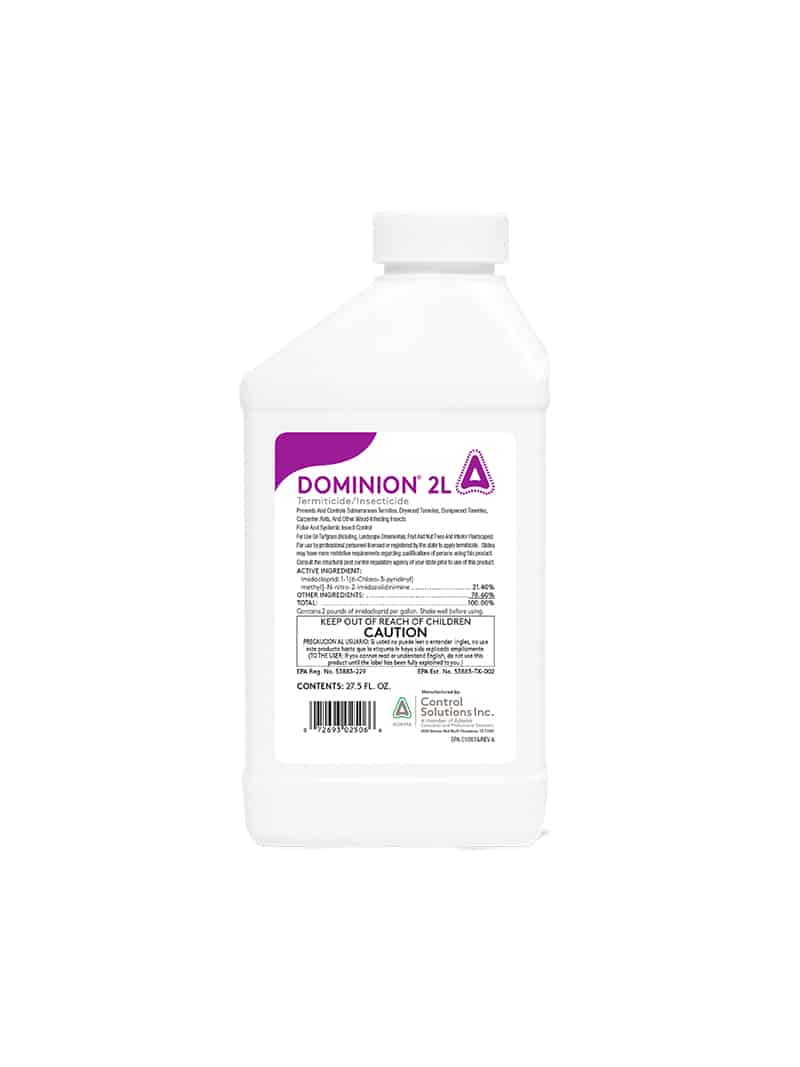
Reviews
There are no reviews yet